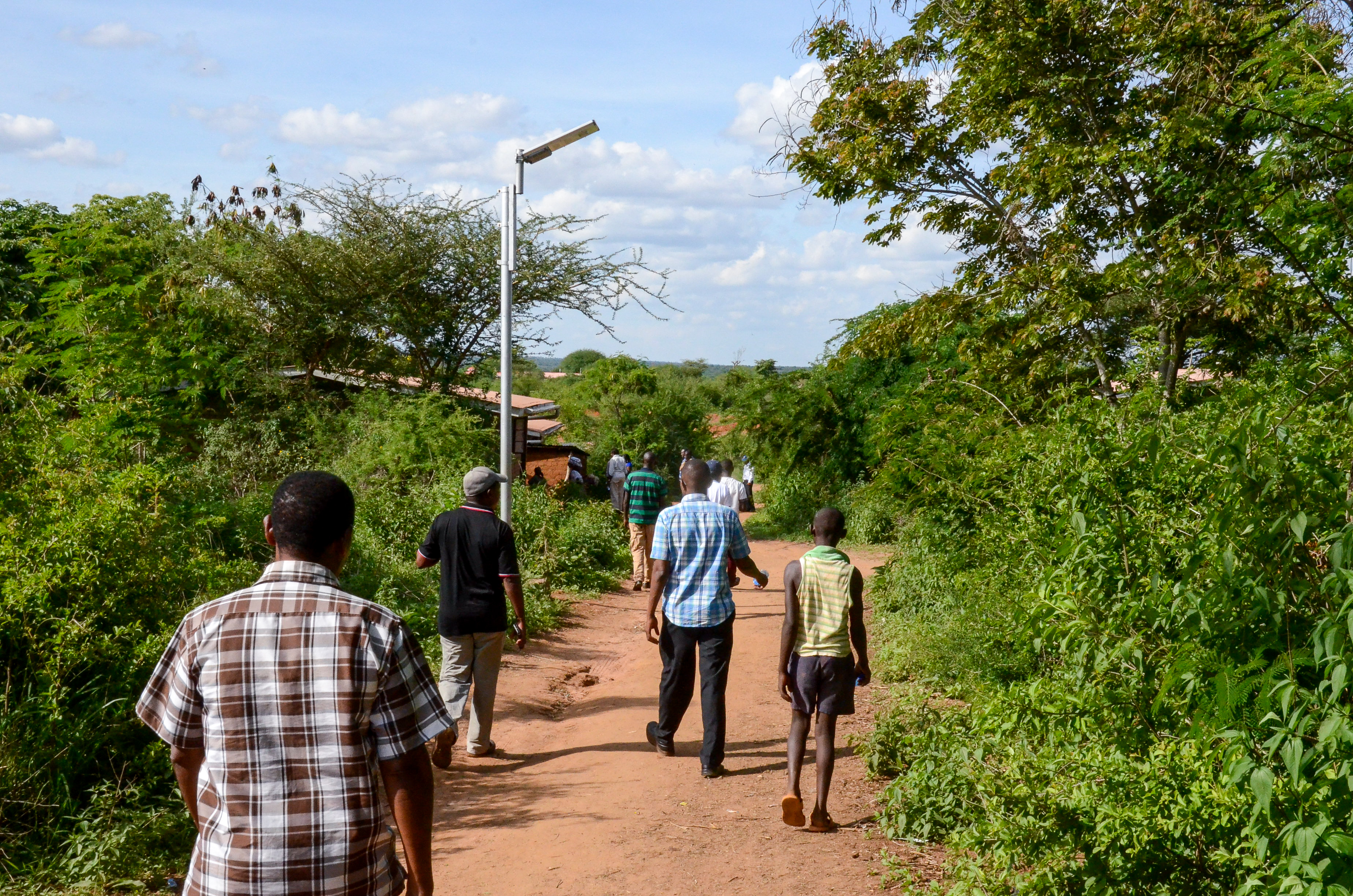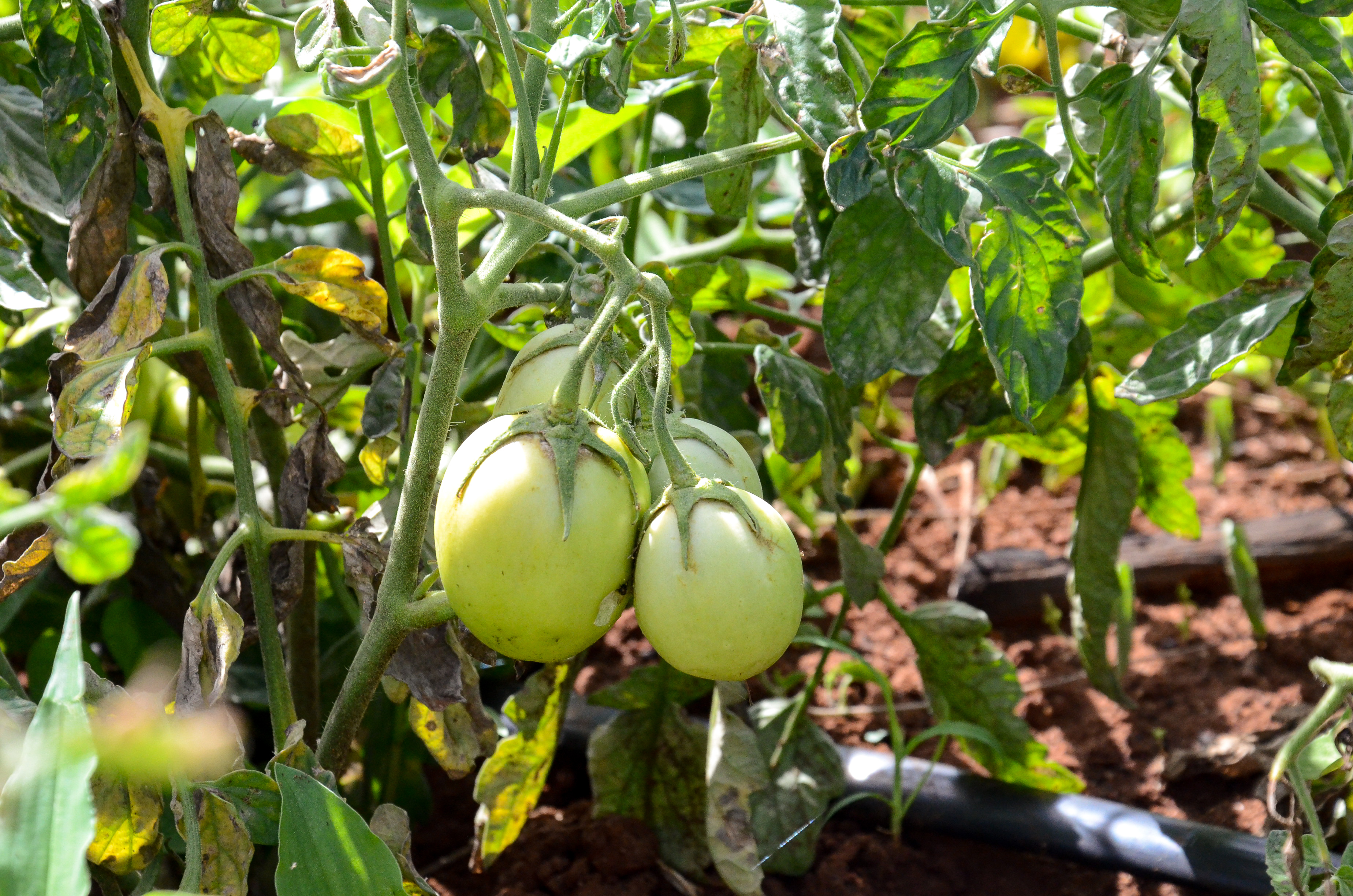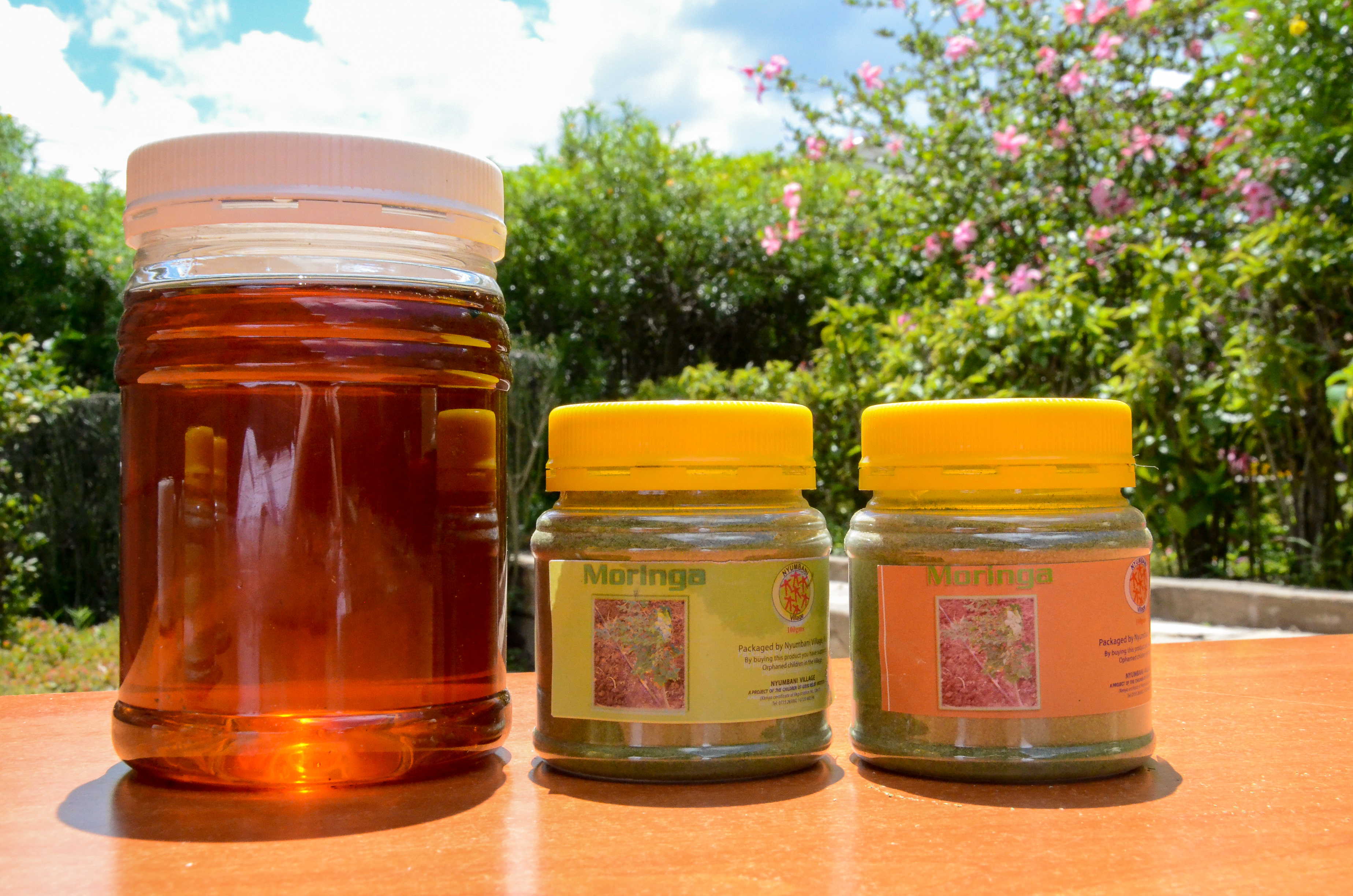The Global Environment Facility (GEF) Small Grants Programme (SGP) of UNDP has supported Nyumbani Village in Kitui County, Kenya, to chart a path towards a sustainable future for all of the children it cares for, whose families have been affected by HIV (Photo: UNDP Kenya/Nicholas Wilson)
Nyumbani Village is a truly unique and inspiring place. Set up in 2006 as part of a network of facilities to house children whose family situation has been affected by HIV/AIDS, Nyumbani provides holistic care to the children that live there: shelter, nourishment, social support, education and training. Each child living at the Village has an individual care plan, and is even supported into early adulthood through funding for tertiary education or small businesses.
Providing all of this comes at a large cost – but as the HIV pandemic is increasingly contained in Kenya relative to the wider region, the Nyumbani management team predicts a drop in external support. Their response? A renewed focus on self-sustainability. With support from the Global Environment Facility (GEF) Small Grants Program (SGP) and UNDP, Nyumbani Village is charting a course towards a sustainable and climate-friendly future, ensuring ongoing support to the children in its care.
“HIV/AIDS was ravaging our people then and so many were being left orphaned – their families died and they were left on the street... we brought both lone children and family members here who were struggling to get by.” - Raphael Ndanga, Programme Manager
Nyumbani sprawls across over 1000 acres of countryside in Kitui County, and currently houses almost 1000 children from Kitui, Makueni and Machakos Counties. An additional 100 caregivers live with the children in small clusters, whilst 55 further full-time staff tend to duties such as administration, farming, social care, education and more. The area around the Village is central to its operation: over 150 children from the local community attend Nyumbani’s on-site schools and locals are employed in a number of different capacities supporting the Village.
The emphasis on sustainability at Nyumbani Village is immediately obvious. Solar panels are dotted along main pathways and there is an extensive farming setup with poultry, livestock and crops aplenty.
GEF SGP have supported the rollout of solar-powered lights across Nyumbani Village to allow safer movement after dark, as well as the move towards greenhouse agriculture, greatly improving yield of crops including kale, tomatoes and spinach (Photo: UNDP Kenya/Nicholas Wilson)
Jacob Gitonga, Farm Manager at Nyumbani Village, tells us 578 acres is currently under cultivation, under trees and well as growing crops such as maize and sorghum as well as chilis, kale, tomatoes and spinach. The more food the Nyumbani community grows in-house, the less they need to spend on importing, and the lower the harmful emissions from delivery by road to the relatively remote Village.
This is one of the main avenues in which GEF SGP has partnered to support Nyumbani's mission of sustainability: the scaling-up of farm production using greenhouses. So far, 4 greenhouses have been constructed, as have several water tanks and pumps to irrigate these.
“Currently, we’ve started adopting greenhouses for our farming – they’re more productive compared to what we were doing before due to advantages associated with the technology. Still, since we’ve not attained the number that we want we’re still doing open field farming… maybe in future all our farming will be under greenhouses.” - Jacob Gitonga, Farm Manager
Not all goods can be produced in-house, such as household appliances and electronics. Increasing yield of foodstuffs alone will not achieve Nyumbani’s lofty goals of self-sufficiency as income needs to be generated to pay for these, as well as fund the clinic, schools and administration. One way in which the Village is beginning to do this in a meaningful way is through the production of packaged agricultural goods – among them, moringa and honey.
Nyumbani produce moringa and honey in-house to both consume and sell, which generates revenue to pay for items which the Village is not able to produce in-house (Photo: UNDP Kenya/Nicholas Wilson)
Moringa, also known as drumstick tree, is a fast-growing plant with various culinary and medicinal uses – in Kenya, Moringa is best known for its roots, which are typically powdered and added to food or tea. With 130 beehives Nyumbani is also able to produce and sell a significant amount of honey. Selling these goods (and others such as timber) is not the only way in which Nyumbani generates income: it has developed an eco-tourism facility, which the Housekeeper Ms. Felistus Kasungi tells us can cater for several dozen guests at a time.
GEF SGP also supports sustainability efforts in the Village in a more personal regard: powering the ‘clinic solar system’. Around 10% of children living at Nyumbani are HIV+, so having a well-functioning and well-equipped clinic is crucial. There is a full-time clinical officer, a lab technician and 2 counsellors providing social support to the children, most of whom are away from their families or have lost family members.
Whereas using petrol generators to power this would be both financially and environmentally costly, installing solar panels on the roof of the clinic, as well as around the compound, means that power can be sustainably generated to facilitate round-the-clock care for both the children of Nyumbani and the local community. Moreover, the paths to-and-from the clinic can also be illuminated sustainably.
GEF SGP has supported the installation of solar panels and an inverter/charger for the clinic to harness solar energy, dubbed the 'clinic solar system'; the clinic serves not only the children and carers of Nyumbani, but also the local population (Photo: UNDP Kenya/Nicholas Wilson)
“Sustainability is part of our focus. If some organisations will support us and at some point leave, how will we help ourselves? We need to become self-reliant.” - Richard Mose, Accountant
Currently, Nyumbani generates enough income to cover around 20% of its annual expenditure. Programme Manager Raphael Ndanga explains to us, however, that much of the fixed costs in terms of buildings and farming infrastructure are now complete, whilst costs are falling as energy and food production increases. Hence, Nyumbani's management has set a target of reaching 55% by the end of 2021.
Nyumbani's goals are ambitious, but their message of supporting children affected by HIV/AIDS in a self-sustainable and climate-friendly way is a powerful one. Through partnering with GEF SGP and UNDP, they are a few crucial steps closer.
************************************************************************************************************************
About UNDP in Kenya:
Under the Country Programme Document (CPD) 2018–22, UNDP leverages innovative approaches working under three pillars of: Governance, Peace and Security; Inclusive Growth and Structural Transformation; and Environmental Sustainability, Climate Change and Resilience.
The Global Environment Facility Small Grants Programme of UNDP, which was launched in 1992, the year of the Rio Summit, channels financial, technical and capacity building assistance directly to civil society organizations for activities that conserve the environment while enhancing people’s wellbeing and livelihoods. Special consideration is given to projects that support women groups, the youth, indigenous peoples and persons with disabilities.
Disclaimer: This story is based on first person reports and interviews conducted during a monitoring visit in Kitui County, November 2019. The opinions expressed in this story are solely those of the interviewed participants and do not necessarily represent the views of affiliated donors or organisations.
Edited by Nancy Chege, UNDP.

 Locations
Locations









